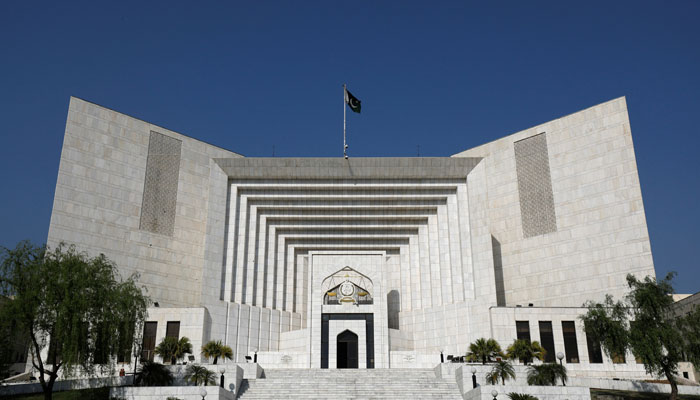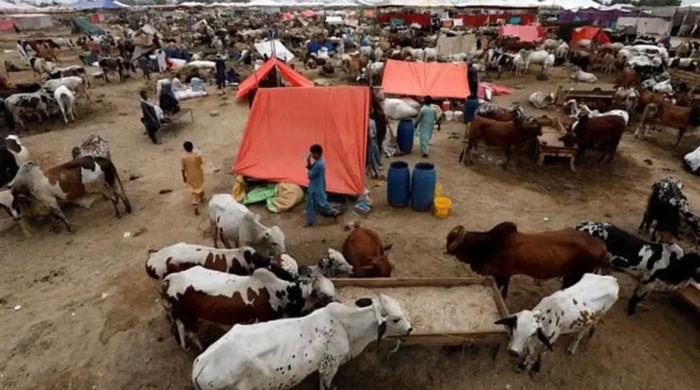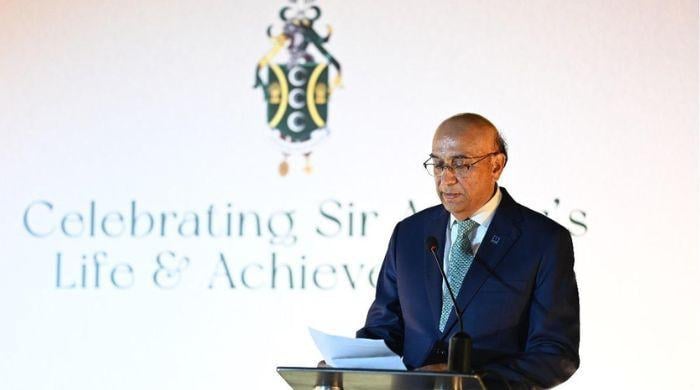SC judges' salary, allowance cannot be disclosed under RTI: Registrar Office
Multiple lawyers disagree with response of the Registrar Office and believe that information should be made public
April 11, 2023

The monthly salaries and allowances of Supreme Court judges cannot be made public under the Right of Access to Information Act, 2017 as the top court does not qualify as a “public body”, officials of the Court state.
On March 27, Geo Fact Check wrote to the registrar of the Supreme Court of Pakistan seeking information under the Right of Access to Information Act, regarding the pay and benefits the chief justice of Pakistan and the judges are entitled to per month.
It received a response from Khurram Shahzad, the assistant registrar administration of the Court, on April 5.
Shahzad wrote that the request for information “cannot be entertained” as it falls outside the purview of the Act.
He added that only records held by a “public body” are accessible under the right to information law.
“Although the definition of ‘public body’ is very exhaustive in the Act 2017,” the assistant registrar wrote, “Yet the legislature in its wisdom did not include this Court within the fold of the said definition and excluded it from the purview of the Act.”
The letter states that it has been issued with the approval of the chief justice of Pakistan.
The Right of Access to Information Act, 2017, defines a “public body” as government and state institutions and “any court, tribunal, commission or board under the federal law.”
In contrast, in neighboring India, the salary, pension, allowance and gratuity of the chief justice of India, judges of the Supreme Court, chief justice of the High Courts and judges of the High Courts, are publicly listed on the website of India’s department of justice, which was last updated on February 24, 2022.
However, in January this year, in a related development, India’s Gujarat High Court quashed a petition seeking information regarding the pay of high court judges, ruling that it cannot be disclosed under their Right of Information Act as it qualifies as “personal information”.
Should this information be public?
Geo Fact Check reached out to multiple lawyers, who all disagreed with the response of the Registrar Office and are of the opinion that this information should be made public.
Saroop Ijaz, the senior counsel Asia Division of the Human Rights Watch, told Geo Fact Check over the phone that in his opinion there are no grounds for excluding the judiciary from the ambit of the Right of Access to Information Act.
“How much money one gets paid should not be privileged information, especially those in high offices,” he said, “There is in fact a bigger responsibility on people in high offices to volunteer themselves to provide this information…especially if [the money] is being paid by taxpayers.”
While lawyer Salahuddin Ahmed said that the registrar office was correct in stating that the Supreme Court is not a “public body” under the Right of Access to Information Act, 2017, as the Supreme Court was not created as a result of any federal law but by the direction of the constitution.
However, the lawyer added that Article 19A of the constitution grants a citizen the right to have access to information of public importance, subject to regulation and reasonable restrictions imposed by law.
“Is there any law that excludes the Supreme Court from Article 19A? No,” Ahmed said, over the phone, “Even if there was a law, will it be reasonable? Information about the salaries [of judges] should not be secretive. This [response by the registrar office] is a violation of Article 19A.”
How much do Supreme Court judges actually earn?
Geo Fact Check was able to gather the exact pay and privileges earned by the Supreme Court judges from other officials’ privy to the information.
As per a senior official of the ministry of law and justice, the chief justice of Pakistan takes home a base salary of Rs1,024,324 per month, while each Supreme Court judge gets paid Rs967,638 per month.
On top of which, the judges of the Supreme Court, including the chief justice, are also entitled to a monthly Superior Judicial Allowance of Rs428,040, the official told Geo Fact Check.
Other monthly perks include 600 litres of petrol and two 1,800cc chauffeur-driven vehicles for a judge, while the chief justice is allotted a 2,400cc vehicle.
Then there is Rs68,000 for house rent and Rs8,000 daily travel allowance, if they travel out of the city.
Another official, who also did not want to be named, confirmed that a judge of the Supreme Court is paid a sum of Rs69,035 per month for medical treatment. However, none of the officials could confirm the exact amount disbursed for electricity and telephone to a judge.
Thus the salary and benefits add up to roughly seven figures, of over Rs1.7 million per month.
As per the President’s Order No 2 1997, which deals with the apex court judges' leave, pension and privileges, the house rent, car allowance, superior judicial allowance and cost of living allowance will not be taxed.
Meanwhile, a retired judge of the Supreme Court of Pakistan receives a pension of nearly Rs1 million per month, including perks and privileges, such as electricity units and petrol.











